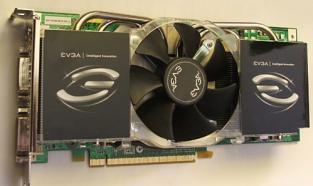OOPS! You forgot to upload swfobject.js ! You must upload this file for your form to work.
5G Network useful not only to robo car, but also virtual reality devices
![]()
|
xtreview is your : Video card - cpu - memory - Hard drive - power supply unit source |
|
|||
|
|
||||
 Recommended : Free unlimited image hosting with image editor
Recommended : Free unlimited image hosting with image editor
|
POSTER: computer news || 5G NETWORK USEFUL NOT ONLY TO ROBO CAR, BUT ALSO VIRTUAL REALITY DEVICES |
DATE:2016-11-17 |
|
|
Experts concluded that the spread of 5G networks will not only contribute to the development of "smart" cars, which will transmit massive amounts of data directly in the movement, but also give impetus to the development of the "Internet of Things". Cheap sensors and devices require battery replacement every few years, and some of them did and will receive energy from alternative sources during its entire life. According to Jacobs, and Chow, virtual and augmented reality will be those segments that 5G networks are allowed to move to a qualitatively new level. 5G networks ability to reduce transmission delay one millisecond to allow the virtual reality helmets rid of a wired connection to a PC without sacrificing speed feedback. For augmented reality data transmission speed will be important to eliminate the backlog of "drawing" objects of an imaginary world from changing the angle of the real world. Moreover, the objects in their imaginary world of photorealism will not yield to this, and it will require increasing volumes of information transmitted. 5G Network will give impetus to the development of telemedicine. Consulting, diagnostics, remote surgery specialists with the help of robots - all this will be the norm not only for the advanced economies, but also to their less affluent neighbors. Sports events with the 360-degree panorama will allow the viewer to be in the thick of things, just wearing a virtual reality device. | ||
|
|
||
|
xtreview is your : Video card - cpu - memory - Hard drive - power supply unit source |
|
|
|
|
||
|
Xtreview Support  N-Post:xxxx Xtreview Support        |
5G NETWORK USEFUL NOT ONLY TO ROBO CAR, BUT ALSO VIRTUAL REALITY DEVICES |
| Please Feel Free to write any Comment; Thanks  |
Dynamic network action LawBreakers went on sale, a release trailer attached (2017-08-08)
In role-playing Divinity: Original Sin 2 will be a network mode with a split screen (2017-08-02)
The new patch for the network shooter Survarium added the first story mission (2017-07-07)
The release date of the network shooter LawBreakers (2017-06-13)
New patch for Mass Effect: Andromeda again rules the animation and makes big changes to the network mode (2017-05-11)
Xenos vs Marines - a new network shooter from Gaijin Entertainment (2017-04-03)
Microsoft and Toyota expand cooperation in the field of creation of cars connected to the Network (2017-03-24)
Volkswagen in the United States will create a network of 500 charging stations (2017-02-08)
Firaxis is working on introduction of Civilization VI command and support network game Workshop Steam (2017-01-27)
Qualcomm believes that all cars will be connected to the global network through ten years (2016-12-05)
About half the worlds population has access to a global network (2016-11-23)
5G Network useful not only to robo car, but also virtual reality devices (2016-11-17)
Xbox Live has surpassed PlayStation Network in an independent study (2016-09-12)
A vulnerability in the Google advertising Network banner, involving a large number of sites (2016-08-07)
NVM Express protocol is now working on Ethernet network and other channels (2016-06-12)
Virtualization of the network functions - is one more chance for SoC on ARM (2016-05-17)
5G Network will give impetus to the development of robotics (2016-02-25)
Google introduces ad-hoc network messenger in Hangouts (2016-02-08)
A memristor for neural networks (2016-01-31)
Backup batteries for fast charging of electric vehicles safe for network (2016-01-22)
![]()
To figure out your best laptops .Welcome to XTreview.com. Here u can find a complete computer hardware guide and laptop rating .More than 500 reviews of modern PC to understand the basic architecture


7600gt review
7600gt is the middle card range.
We already benchmarked this video card and found that ...

 geforce 8800gtx and 8800gts
geforce 8800gtx and 8800gts  Xtreview software download Section
Xtreview software download Section  AMD TURION 64 X2 REVIEW
AMD TURION 64 X2 REVIEW  INTEL PENTIUM D 920 , INTEL PENTIUM D 930
INTEL PENTIUM D 920 , INTEL PENTIUM D 930  6800XT REVIEW
6800XT REVIEW  computer hardware REVIEW
computer hardware REVIEW  INTEL CONROE CORE DUO 2 REVIEW VS AMD AM2
INTEL CONROE CORE DUO 2 REVIEW VS AMD AM2  INTEL PENTIUM D 805 INTEL D805
INTEL PENTIUM D 805 INTEL D805  Free desktop wallpaper
Free desktop wallpaper  online fighting game
online fighting game  Xtreview price comparison center
Xtreview price comparison center Lastest 15 Reviews


Rss Feeds
Last News
- The new version of GPU-Z finally kills the belief in the miracle of Vega transformation
- The motherboard manufacturer confirms the characteristics of the processors Coffee Lake
- We are looking for copper coolers on NVIDIA Volta computing accelerators
- Unofficially about Intels plans to release 300-series chipset
- The Japanese representation of AMD offered monetary compensation to the first buyers of Ryzen Threadripper
- This year will not be released more than 45 million motherboards
- TSMC denies the presentation of charges from the antimonopoly authorities
- Radeon RX Vega 64 at frequencies 1802-1000 MHz updated the record GPUPI 1B
- AMD itself would like to believe that mobile processors Ryzen have already been released
- AMD Vega 20 will find application in accelerating computations
- Pre-orders for new iPhone start next week
- Radeon RX Vega 57, 58 and 59: the wonders of transformation
- ASML starts commercial delivery of EUV-scanners
- The older Skylake processors with a free multiplier are removed from production
- Meizu will release Android-smartphone based on Helio P40
- AMD Bristol Ridge processors are also available in American retail
- The fate of Toshiba Memory can be solved to the next environment
- duo GeForce GTX 1080 Ti in GPUPI 1B at frequencies of 2480-10320 MHz
- New Kentsfield overclocking record up to 5204 MHz
- Lenovo released Android-smartphone K8

HALO 3 HALO 3 - Final Fight!

PREY Prey is something you don t often see anymore: a totally unigue shooter experience.

computer news computer parts review Old Forum Downloads New Forum Login Join Articles terms Hardware blog Sitemap Get Freebies


